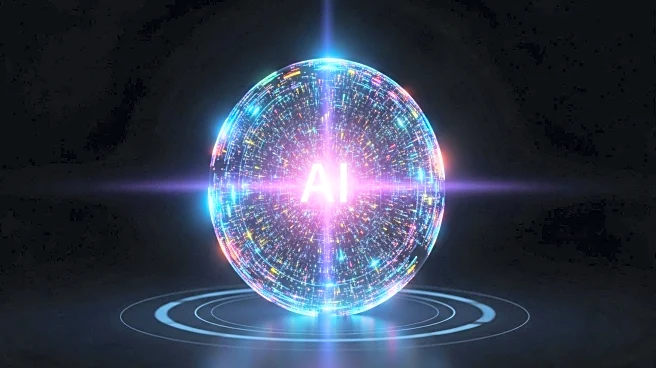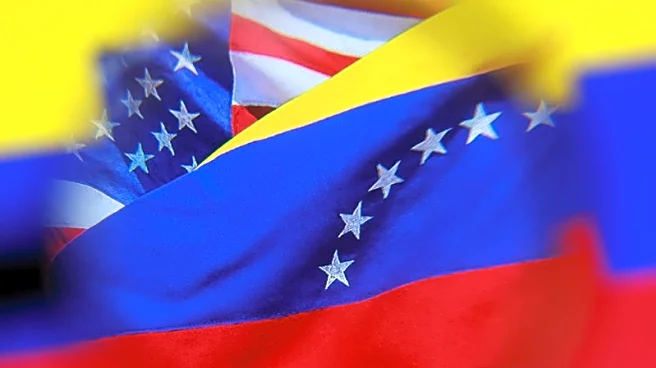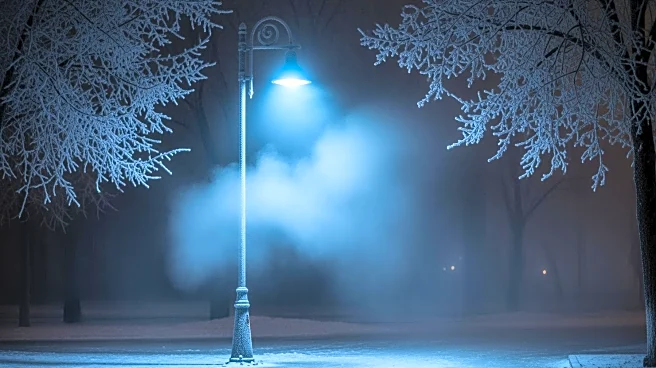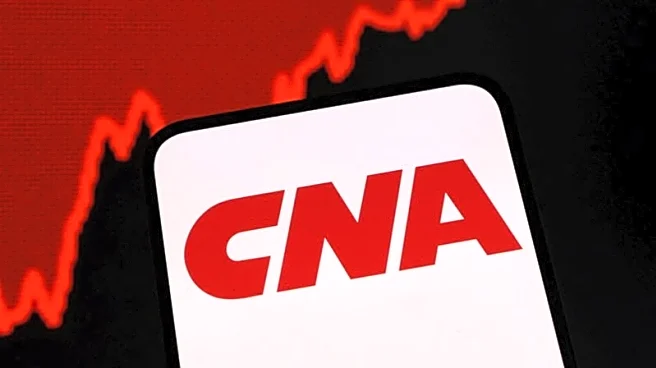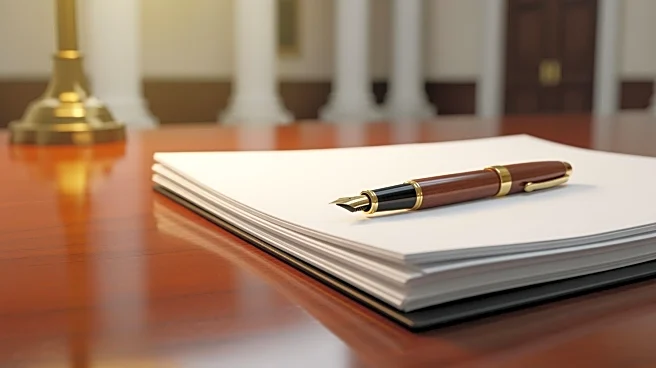What is the story about?
What's Happening?
OpenAI has launched Sora 2, a new video and audio generation tool, which is touted as the 'most powerful imagination engine ever built.' Within 24 hours of its release, users have generated content featuring copyrighted characters such as Sonic the Hedgehog and Pikachu, raising concerns about copyright infringement. The app, currently invite-only, allows users to create and share content, but has restrictions on certain characters like Darth Vader and Mickey Mouse due to copyright issues. OpenAI has informed copyright holders that they must opt out if they do not want their content used in Sora-generated videos. Despite these restrictions, the tool appears to have been trained on copyrighted material without explicit permission, as evidenced by outputs resembling popular shows and characters.
Why It's Important?
The release of Sora 2 highlights ongoing challenges in the intersection of AI technology and intellectual property rights. The ability of AI to generate content that closely mimics copyrighted material poses significant legal and ethical questions for creators and copyright holders. This development could impact industries reliant on intellectual property, such as entertainment and media, by potentially undermining the value of original content. Companies like Disney have already opted out, indicating a cautious approach to AI-generated content. The situation underscores the need for clear guidelines and regulations to balance innovation with the protection of intellectual property rights.
What's Next?
OpenAI is working with rightsholders to understand their preferences for how their content appears in Sora-generated videos. As the tool gains popularity, it is likely that more copyright holders will opt out, prompting OpenAI to refine its approach to using copyrighted material. The company may face increased scrutiny and potential legal challenges as stakeholders assess the implications of AI-generated content. Additionally, OpenAI's approach to user likenesses in videos could lead to broader discussions on privacy and consent in AI applications. The evolution of Sora 2 will be closely watched by industry leaders and policymakers as they navigate the complexities of AI and copyright.
Beyond the Headlines
The launch of Sora 2 raises deeper questions about the role of AI in creative processes and the potential for AI to disrupt traditional content creation models. As AI tools become more sophisticated, they may challenge the notion of authorship and originality, leading to shifts in how creative works are valued and monetized. The ability to generate realistic likenesses of individuals also poses privacy concerns, as users may face social ramifications from AI-generated content depicting them in compromising situations. These developments highlight the need for ethical considerations and robust frameworks to guide the use of AI in creative industries.
